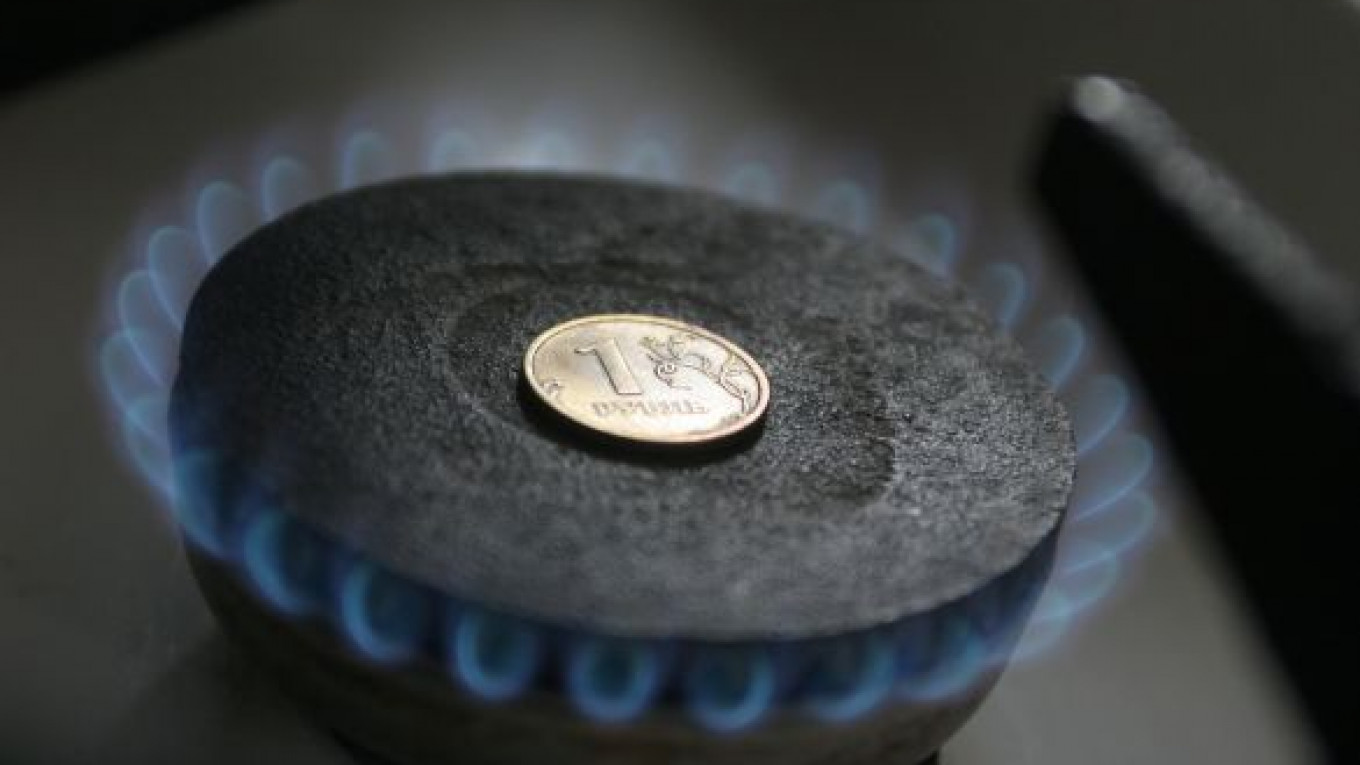Gazprom, the world's top gas producer, expects to hand $4.7 billion in price cuts to European consumers this year, company officials said Friday, and the company vowed to make good on dividend promises despite the cash flow hit.
Customers and competitors have been pressing the state-controlled company to cut its prices in Europe, where it generates nearly 60 percent of revenues from gas sales.
Gazprom has amended long-term contracts with some European clients. That was a response to falling demand due to Europe's economic slump, energy efficiency drives and competition from liquefied natural gas, especially in its main market, Germany.
Gazprom set aside 133 billion rubles ($4.4 billion) for 2012 refunds and said Friday that it had paid out only $2.7 billion.
Analysts say price concessions to the likes of Polish gas monopoly PGNiG may help Gazprom rebuild its 25 percent share of the European market and meet its goal of raising gas exports to Europe by 10 percent this year, to 152 billion cubic meters.
"It looks like Gazprom may sell at least 150 bcm to Europe," UralSib analyst Alexei Kokin said. "Last year was very bad for them, while they also offered some discounts for their gas."
Sources said Gazprom may cut gas prices to Europe this year to levels comparable to those on the spot market, where prices undercut the formula linked to oil prices in Gazprom's long-term contracts.
Rival suppliers such as Norway's Statoil have adapted pricing policies proactively to increase gearing to prices on Europe's increasingly active gas trading hubs.
Among other challenges, domestic rivals, led by independent producer Novatek, want to overturn Gazprom's monopoly on exporting gas, enshrined in a 2006 law. Novatek has been lobbying for the rights to export liquefied natural gas by ship.
President Vladimir Putin's energy policy commission is due to meet on Wednesday to discuss the Novatek proposal, which reports suggest has won backing from Rosneft, the state oil major headed by longtime Putin ally Igor Sechin.
Gazprom's declining cash flows have called into question its ability to boost dividends while funding vast investment projects, including plans to expand its pipeline export routes, that will cost tens of billions of dollars.
Analysts who saw an investor presentation in Moscow on Friday said Gazprom aimed to pay 2012 dividends of 7 to 8 rubles per share, down from 8.97 for 2011. But for the current year, the company expects dividends to rise to between 8 and 9 rubles.
The sources said Gazprom plans to post free cash flow of only $1 billion in 2012, which may force it to borrow to pay those dividends.
Gazprom shares fell 1.3 percent Friday, underperforming the wider market, which eased 0.8 percent.
Gazprom also said it expected 2012 net income to be $38 billion, down from $45 billion in 2011. It usually pays about 25 percent of net profit to meet Russian accounting standards.
The company earmarked $40 billion for 2013 capital expenditures, compared with $44 billion in 2012.
But spending may rise further because Gazprom tends to revise it upward during the year.
Gazprom directed the bulk of investment toward development of major fields, such as Bovanenkovo, in such places as the Yamal Peninsula as it tries to stem any decline in gas output.
Gazprom also embarked on a number of politically motivated projects with dubious economic benefits, such as the South Stream pipeline, designed to bypass transit states, such as Ukraine, through which its export pipelines run.
The company estimates the cost of the project at $39 billion, while some analysts say it may rise to as much as $55 billion due to needs to upgrade and expand domestic pipelines to make them compatible with this link.
Gazprom believes it still has the money to sponsor top-flight football clubs Zenit St. Petersburg and the German Bundesliga's Schalke 04 and also afford the 462-meter-high tower in St. Petersburg planned as its new headquarters.
Energy revenues in Russia are heavily taxed to fund social spending. The government is also keen on ensuring that high dividends are maintained by state entities as another way of skimming income from the energy industry.
Related articles:
A Message from The Moscow Times:
Dear readers,
We are facing unprecedented challenges. Russia's Prosecutor General's Office has designated The Moscow Times as an "undesirable" organization, criminalizing our work and putting our staff at risk of prosecution. This follows our earlier unjust labeling as a "foreign agent."
These actions are direct attempts to silence independent journalism in Russia. The authorities claim our work "discredits the decisions of the Russian leadership." We see things differently: we strive to provide accurate, unbiased reporting on Russia.
We, the journalists of The Moscow Times, refuse to be silenced. But to continue our work, we need your help.
Your support, no matter how small, makes a world of difference. If you can, please support us monthly starting from just $2. It's quick to set up, and every contribution makes a significant impact.
By supporting The Moscow Times, you're defending open, independent journalism in the face of repression. Thank you for standing with us.
Remind me later.






